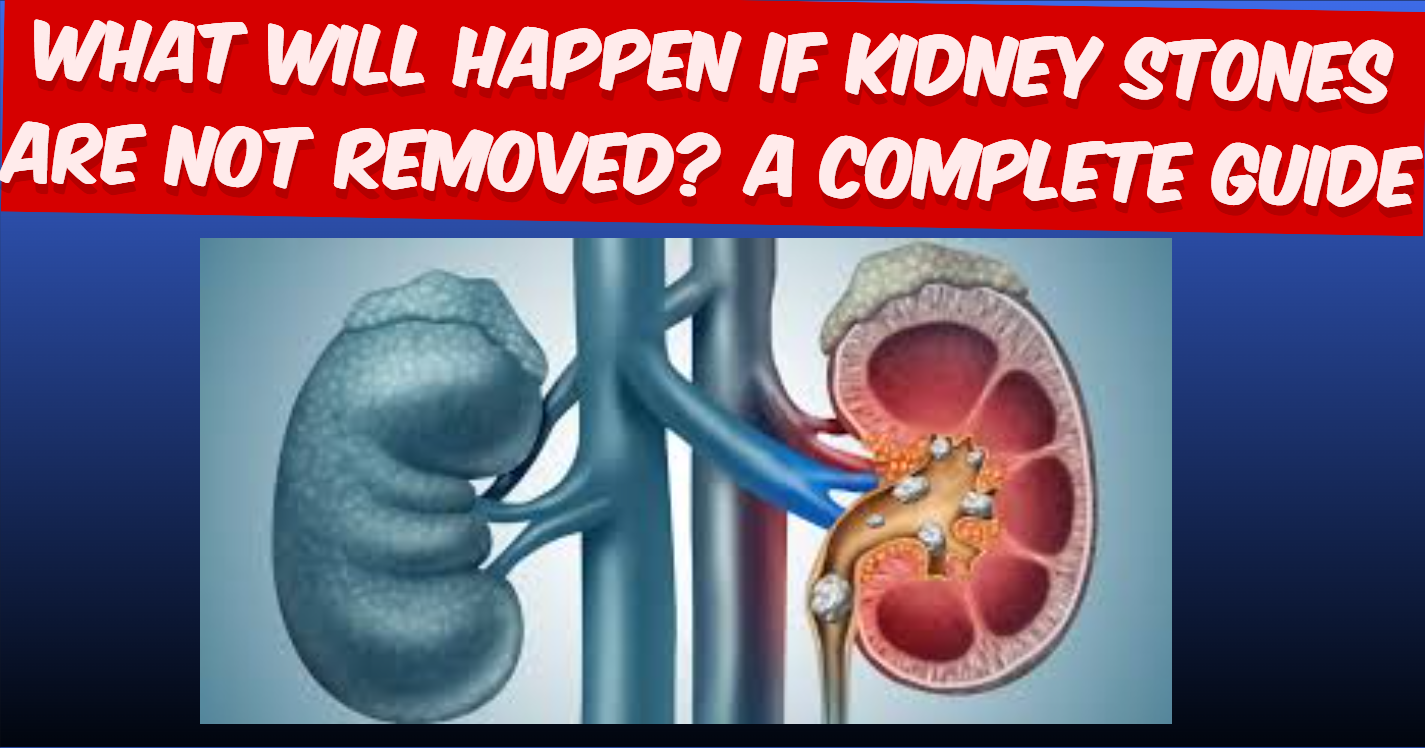Kidney stones are small, hard deposits that form in your kidneys and can cause severe pain and complications if left untreated. But what will happen if kidney stones are not removed? Ignoring kidney stones can lead to serious health issues, including infections, kidney damage, and even life-threatening conditions. In this article, we’ll explore the risks of untreated kidney stones, how they affect your body, and why timely treatment is crucial.
What Happens If Kidney Stones Are Not Removed?
Ignoring kidney stones can lead to a cascade of health problems. Here’s what could happen if they are not treated:
1. Blockage of Urine Flow
Kidney stones can block the flow of urine, causing a buildup of pressure in the kidneys. This can lead to:
- Hydronephrosis: Swelling of the kidneys due to urine buildup.
- Severe pain: Often described as worse than childbirth.
2. Kidney Damage
Prolonged blockage can damage the kidneys, reducing their ability to filter waste from the blood. In severe cases, this can lead to chronic kidney disease or even kidney failure.
3. Infections
Stagnant urine caused by a blockage can become a breeding ground for bacteria, leading to urinary tract infections (UTIs) or kidney infections (pyelonephritis). Symptoms include fever, chills, and cloudy or foul-smelling urine.
4. Sepsis
If a kidney infection spreads to the bloodstream, it can cause sepsis, a life-threatening condition that requires immediate medical attention.
5. Recurrent Stones
Untreated kidney stones increase the risk of developing more stones in the future, creating a painful and frustrating cycle.
How Kidney Stones Affect Your Body
To better understand the impact of untreated kidney stones, let’s look at how they affect different parts of your body:
| Body Part | Effect of Untreated Kidney Stones |
|---|---|
| Kidneys | Swelling, damage, and potential failure due to blocked urine flow. |
| Urinary Tract | Infections, inflammation, and scarring. |
| Bloodstream | Risk of sepsis if infection spreads. |
| Overall Health | Chronic pain, fatigue, and reduced quality of life. |
Why Timely Treatment Is Crucial
Treating kidney stones early can prevent complications and improve your quality of life. Common treatment options include:
- Medications: To help pass small stones.
- Extracorporeal Shock Wave Lithotripsy (ESWL): Breaks stones into smaller pieces using sound waves.
- Ureteroscopy: Removes stones using a thin scope.
- Surgery: For large or complex stones.
Prevention Tips for Kidney Stones
Preventing kidney stones is easier than treating them. Here are some tips:
- Stay Hydrated: Drink plenty of water to dilute urine and prevent stone formation.
- Eat a Balanced Diet: Limit salt, sugar, and animal protein.
- Monitor Calcium Intake: Get enough calcium from food, but avoid supplements unless prescribed.
- Avoid Oxalate-Rich Foods: Such as spinach, nuts, and chocolate, if you’re prone to calcium oxalate stones.
- Exercise Regularly: Maintain a healthy weight to reduce the risk of stones.
Call to Action
If you’re experiencing symptoms of kidney stones, don’t wait. Consult a healthcare professional immediately to avoid complications. Early treatment can save your kidneys and your life.
FAQs About Kidney Stones
1. Can kidney stones go away on their own?
Small stones (less than 4mm) may pass on their own with plenty of water and pain medication. However, larger stones require medical intervention.
2. How long does it take to pass a kidney stone?
It can take anywhere from a few days to several weeks, depending on the size and location of the stone.
3. What foods should I avoid if I have kidney stones?
Avoid foods high in oxalates (like spinach and nuts), salt, and animal protein if you’re prone to kidney stones.
4. Can kidney stones cause permanent damage?
Yes, untreated kidney stones can lead to permanent kidney damage or failure.
5. Are kidney stones preventable?
While not all kidney stones can be prevented, staying hydrated, eating a balanced diet, and maintaining a healthy lifestyle can significantly reduce your risk.
Conclusion
What will happen if kidney stones are not removed? The answer is clear: untreated kidney stones can lead to severe complications, including infections, kidney damage, and even life-threatening conditions like sepsis. If you suspect you have kidney stones, seek medical attention immediately. Early treatment can prevent long-term damage and improve your quality of life.
Remember, prevention is always better than cure. Stay hydrated, eat a balanced diet, and consult your doctor if you experience any symptoms. Your kidneys will thank you!
By following these tips and understanding the risks, you can take control of your health and avoid the painful consequences of untreated kidney stones. Don’t ignore the signs—act today!

